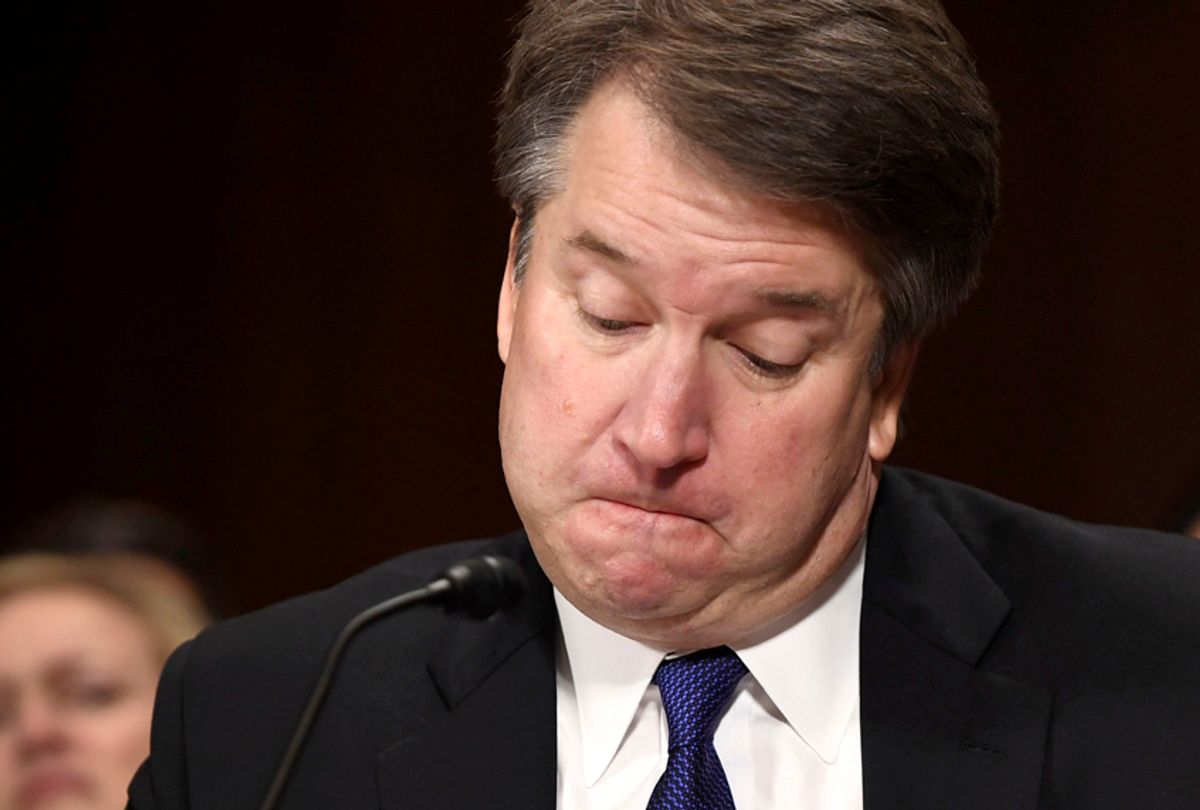Against the backdrop of the recent Senate confirmation hearings to confirm Brett Kavanaugh to the U.S. Supreme Court, young people — especially those aged 15 or 17 — are naturally reflecting on what is being said about actions associated with adolescence.
Because a major factor in Kavanaugh’s hearings was whether he sexually assaulted Christine Blasey Ford when they were teenagers, it’s a good time to engage in complex discussions with youth about law and responsibility.
Teens should challenge any suggestion that abusive behaviour (whether engaging in it or being subject to it) is to be expected at their age. They should be questioning the message that adolescents can’t, or won’t, be held responsible for the consequences of what they do and what they say.
Young people’s brains are still developing, their assessment of risk immature and their experiences limited. They are necessarily figuring things out about themselves and their relationships with others.
Acknowledging that development and limited experience is a feature of adolescence, however, doesn’t get young people off the hook.
As a professor of the law and an expert on children in law, I introduce first year law students to the complexities of holding young people responsible in a meaningful way which means adapting to their developing abilities.
Legal concepts of agency and accountability
Foundational legal concepts like those of agency, consent and accountability all display flexibility in the context of children and youth. But flexibility and responsiveness to the capacities and challenges connected to age don’t mean that anything goes.
There is a meaningful space — space reflected in legal rules — between demanding that young people act like adults, on one hand, and relieving them of significant responsibility, on the other.
In the context of liability for negligence, for example, legal systems typically include a requirement that young people act reasonably so as to avoid harming others — but the assessment of their actions will take into account age and capacity.
It’s important to distinguish this requirement of “reasonable” behaviour from demanding only “average” or “ordinary” behaviour. In other words, as a young person, you have to repair the harm you’ve done if you should have acted otherwise. The question isn’t “How did everyone around you act?” Rather, it’s: “What was the right way to behave?”
Age is not a way to avoid scrutiny
An approach that allows for the progressive development of understanding and control, while insisting on appropriate responsibility in relation to others, is not easy to articulate or implement with precision.
Across a spectrum of sites in national and international law, in contexts ranging from youth criminal justice to civil liability to accountability of child soldiers, we find variations on this approach.
Age is incorporated into the analysis of accountability, but never simply offered as a way to avoid any scrutiny of behaviour.
At the same time that young people are held accountable in law for the consequences of their unreasonable or intentionally wrongful actions, they also expect to be listened to, believed and treated with respect and dignity. So, for example, in the context of abuse by adults in positions of trust and authority, young people need to be reassured that the legal rules set out a path to justice.
More generally, young people need to know that they will be treated as capable of remembering the details of their sexual encounters — whether those that feel positive and right, or those that feel wrong or even terrifying.
Young people are constantly working out how to behave in their relationships with each other, and they are concerned about whether and how the law takes them seriously.
Shauna Van Praagh, Professor of Law, McGill University



Shares